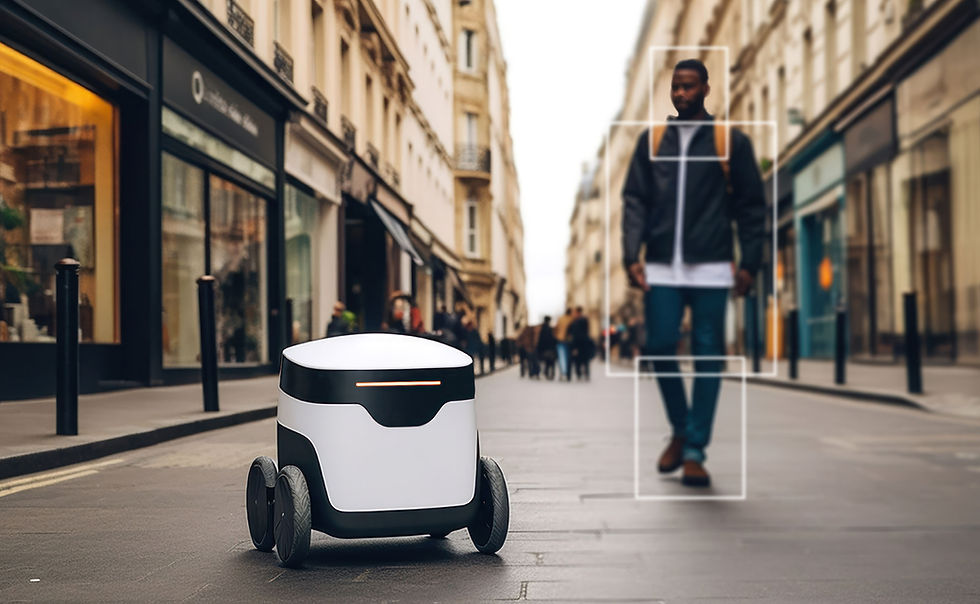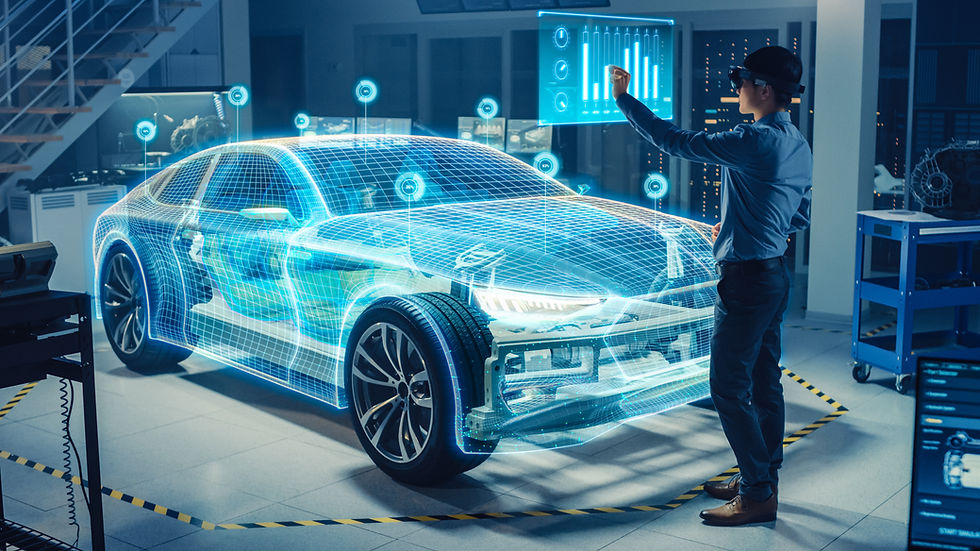Navigating the Legal and Ethical Landscape: Generative AI in the Automobile Industry
- Aug 24, 2023
- 3 min read

In an era of rapid technological advancements and autonomous vehicles, the automotive industry finds itself at the intersection of innovation, legal frameworks, and ethical considerations. Generative Artificial Intelligence (AI) emerges as a guiding force that is reshaping how the industry addresses complex legal and ethical challenges. Let's delve deeper into the transformative role of Generative AI in tackling ethical dilemmas, ensuring compliance, and streamlining legal operations within the automotive sector.
Simulation of Ethical Dilemmas for Autonomous Vehicles: Crafting Ethical Autonomy
As autonomous vehicles become a reality, they bring forth intricate ethical dilemmas.
Generative AI collaborates with autonomous vehicle systems to simulate and analyze diverse scenarios that these vehicles may encounter on the road. These simulations explore the challenging decisions autonomous vehicles must make, such as prioritizing passenger safety, considering pedestrian well-being, and navigating potential collisions. By doing so, AI aids in developing ethical algorithms that guide the behavior of autonomous vehicles, ensuring that they align with societal values and ethical standards.
Legal Document Analysis and Compliance Checking: Precision in Adherence
Navigating the complex web of legal regulations and compliance standards is a crucial
aspect of the automotive industry. Generative AI steps in to streamline this process by analyzing vast volumes of legal documents, regulations, and compliance requirements. By applying natural language processing and machine learning, AI systems can identify clauses, obligations, and potential risks within legal documents. This not only saves time but also ensures accuracy in understanding and adhering to legal obligations.
Contract and Agreement Generation: Streamlined Documentation
Generating contracts and agreements can be a labor-intensive process. Generative AI brings automation to the forefront by collaborating with legal professionals to draft standardized contracts. These AI-generated contracts ensure that all necessary clauses, terms, and conditions are accurately included, reducing human errors and enhancing the efficiency of legal operations. This technology empowers legal teams to focus more on strategic decision-making and less on administrative tasks.
Technology Company's Role: Facilitating Legal Transformation
Technology companies play a pivotal role in catalyzing the integration of Generative AI into legal and ethical considerations. Through collaboration with enterprises, technology providers ensure that AI is seamlessly integrated into compliance management systems, autonomous vehicle programming, and contract generation platforms. By providing tailored solutions, these companies enable the automotive industry to leverage AI's capabilities effectively and navigate legal complexities with confidence.
Data-Driven Decision Making: Guiding Ethical Choices
Generative AI leverages its data-driven capabilities to guide ethical decisions. By analyzing a wealth of data encompassing ethical frameworks, historical precedents, and regulatory standards, AI generates insights that assist manufacturers in developing autonomous systems that prioritize ethical considerations. This data-driven approach empowers the industry to make informed decisions that align with societal values and ethical norms.
Ethical Considerations: Navigating AI's Role in Ethics
While Generative AI holds immense potential in addressing ethical concerns, it also raises ethical considerations of its own. Ensuring that AI-driven ethical algorithms prioritize human safety and well-being, addressing concerns of algorithmic bias and transparency in decision-making, and maintaining a harmonious balance between ethical autonomy and practical decision-making are pivotal aspects that need careful consideration.
Conclusion: Pioneering Ethical and Legal Excellence
Generative AI's impact on legal and ethical considerations is a transformative journey towards excellence. As ethical autonomy, compliance checking, and contract generation converge, they lay the foundation for a future where autonomous vehicles navigate complex ethical landscapes, enterprises uphold legal standards, and the automotive industry stands as a model of ethical and legal integrity.




Comments